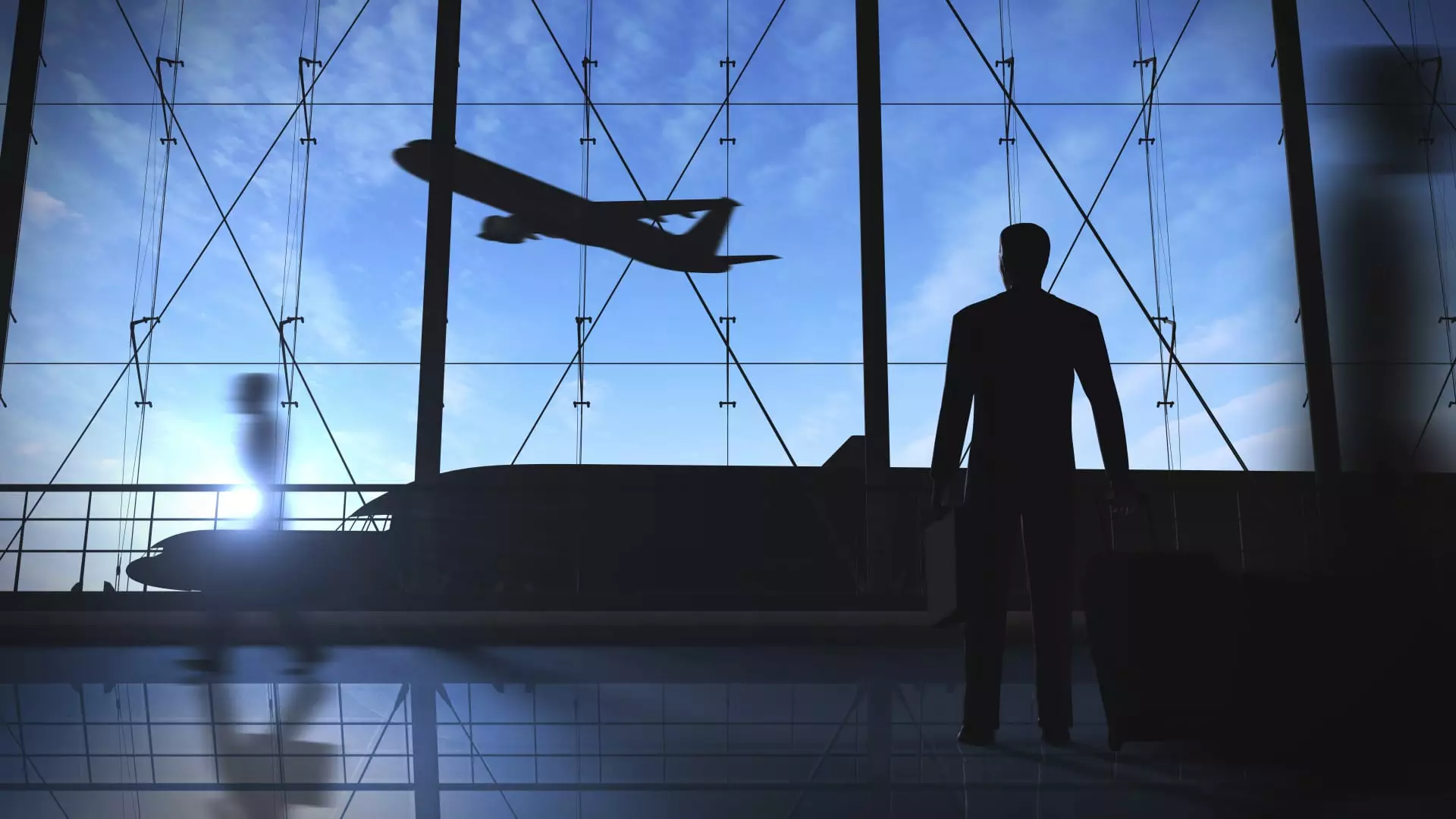In an era marked by economic volatility and political unpredictability, corporate travel emerges as a paradoxical symbol of resilience and cautious pragmatism. While the headlines underscore a modest uptick in overall spending, beneath this surface lies a nuanced landscape where companies are re-evaluating priorities, tightening budgets, and adopting a strategic mindset. Far from abandoning face-to-face interactions, businesses are selectively investing in high-value engagements, understanding that meaningful relationships—whether with clients or colleagues—still require tangible presence. This cautious optimism speaks volumes about the evolving ethos of corporate decision-making; it’s not about reckless expansion but about maximizing impact within tighter constraints.
The reported 15% year-over-year increase in travel activity during the second quarter of 2025 indicates a bounce-back from the pandemic’s aftermath. Yet, this rebound is not uniform or uninhibited. Instead, it reflects a strategic recalibration, where companies are less willing to indulge in frivolous trips and more focused on purpose-driven travel that promises clear returns. This shift reveals a more disciplined and pragmatic approach to business expansion, emphasizing returns on investment rather than volume alone. From this vantage point, corporate travel appears less a symptom of growth and more a tool of deliberate relationship-building essential for sustaining competitive edge in uncertain times.
The Impact of Political and Economic Headwinds on Corporate Confidence
Despite the apparent resilience, underlying sentiment polls expose a quiet sense of apprehension among business leaders. Confidence in the industry’s trajectory has waned considerably since late 2024, with optimism nearly halved. This decline reflects broader macroeconomic concerns, notably trade tensions and policy uncertainty stemming from fluctuating tariffs and international relations. Leaders are acutely aware of how fragile their economic footing is, prompting a preference for caution rather than exuberance. This is a healthy, even necessary, response—businesses should not blindly chase growth when the ground beneath them is shifting.
The revelation that corporations are maintaining travel spending—albeit more selectively—demonstrates a nuanced understanding of risk management. They recognize the cost of lost opportunities in relationship-building and client engagement, especially when these connections can solidify future revenue streams. However, they also understand that firing on all cylinders indiscriminately could exacerbate vulnerabilities. The “wait and see” approach, although perhaps frustrating to optimistic observers, underscores a central truth: adaptability and prudence are the new economic currencies.
Travel Adaptation: Efficiency Over Excess
One of the most compelling themes emerging from recent reports is how companies are re-engineering their travel strategies. Gone are the days of unchecked exuberance, replaced by a focus on efficiency and purpose. CFOs and travel managers are now keenly aware of the importance of getting more bang for their buck. Multi-city trips, consolidated meetings, and fewer overall trips per month are becoming standard practice. This shift aligns with the broader trend across industries to scrutinize every dollar and every minute spent—valuing quality over quantity.
The data reinforces this strategic pivot. For example, increased spending on interpersonal meals indicates a focus on one-on-one engagements that cultivate trust and rapport—core pillars for long-term business relationships. Conversely, reductions in team event expenditures suggest a preference for intimacy and the depth of communication. The decline in premium airfare purchases at the start of the year, followed by a rebound as uncertainty lessened, exemplifies how corporate budgets are flexible but cautious, responsive to macroeconomic signals rather than short-term trends.
The ongoing emphasis on ROI-driven travel underscores a fundamental shift: companies are no longer content to throw resources at surface-level interactions. Instead, they demand tangible outcomes, making each trip a strategic investment rather than a mere expense. This meticulous approach ultimately signifies a maturing industry, ready to adapt to new norms without sacrificing core relationship-building objectives.
Industry Outlook: Straddling Optimism and Realism
Airlines and travel service providers are caught in the same crossfire of optimism and hesitation. Notably, figures from giants like Delta and United Airlines reveal that corporate demand remains subdued but improving—a window of cautious hope amid a landscape fraught with macroeconomic headwinds. While Delta’s CEO predicts a stabilization leading to potential growth, other industry insiders acknowledge that the recovery will be uneven, characterized by “choppy” trends and flattish volumes.
This ambivalence is not merely due to external shocks but also a reflection of internal corporate recalibration. Companies are recalibrating their expectations and operational tactics, aligning their travel budgets with sharper, data-driven goals. The slow but steady resumption of demand, especially as uncertainty recedes, suggests that corporate travel remains a vital component of business strategy, provided it is approached with discernment.
Furthermore, the post-pandemic environment appears to have forever altered the perception of travel’s purpose. It is no longer about quantity but about quality. The recognition that strategic, purpose-driven travel yields better long-term ROI signifies an industry evolving toward austerity—yet one that still values the human element at its core.
In this complex cocktail of economic headwinds, political uncertainty, and evolving corporate priorities, the future of business travel will belong to those who can adapt swiftly, wield data intelligently, and understand that resilient relationships are built on intentional, meaningful engagement rather than sheer volume. It’s a balancing act—one that demands both prudence and purpose—and the companies that master it will emerge stronger in the ever-changing landscape of global commerce.

